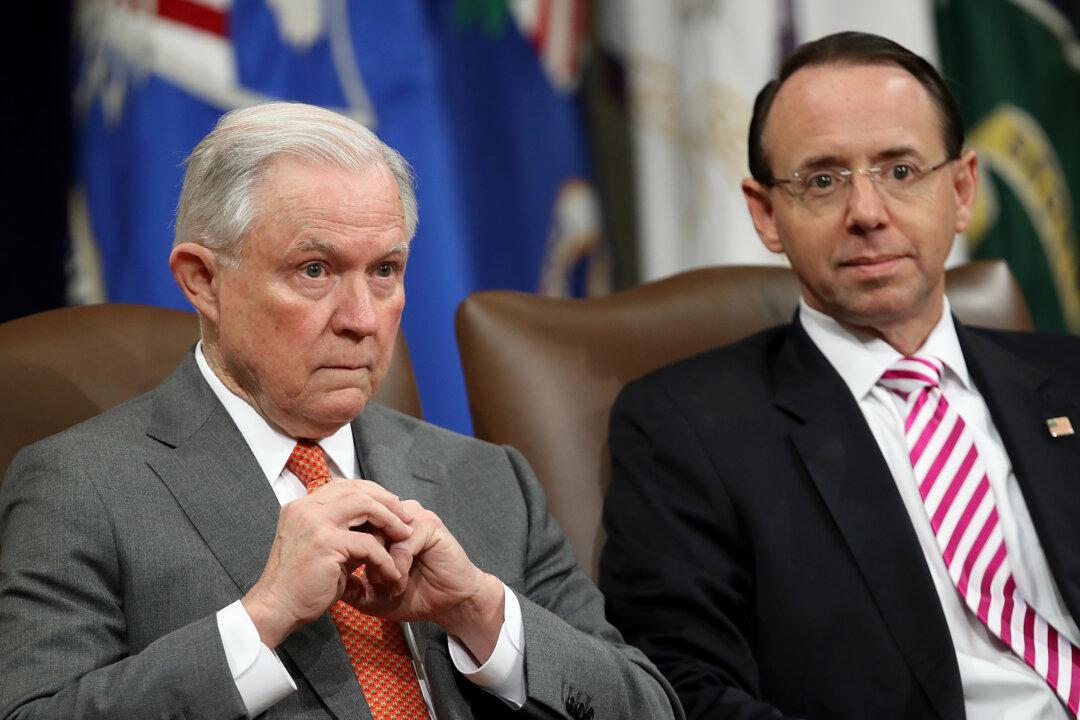Attorney General Jeff Sessions announced the formation of a religious liberty task force on July 30.
The task force will work to uphold the guidance on religious liberty Sessions issued in October last year on cases brought and defended by the Justice Department, arguments government lawyers make in court, and on policies and regulations adopted by various components of the sprawling executive branch.





